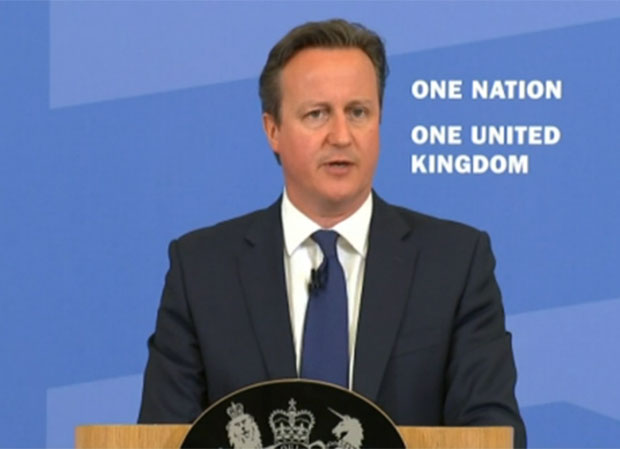8 Sep 2015 | Academic Freedom, Magazine, mobile, Student Reading Lists
Today, technology is being used frequently as a censorship tool as well as a way of getting around censorship. The technology and censorship reading list combines a number of articles released over a twenty-year period on the interference technology can have on free expression and the technological advances meaning censors are being more easily evaded. Includes Bibi van der Zee on the impact of Twitter in driving global political change.
Students and academics can browse the Index magazine archive in thousands of university libraries via Sage Journals.
Technology and censorship articles
Time travel to the web of the past and future: Internet predictions revisited, two decades on by Mike Godwin
Mike Godwin, December 2014; vol. 43, 4: pp. 106-109
Twenty years on, Mike Godwin revisits his article on the arrival of the online world and assesses what he got right, and what challenges remain today
Technology Bytes Back: Censorship and the new communication order by Nan Levinson
Nan Levinson, February 1993; vol. 22, 2: pp. 4
In the early days of the internet, Nan Levinson discusses new technologies and their use in the fight against censorship
Cyber Wars by Ron Deibert and Rafal Rohozinski
Ron Deibert and Rafal Rohizinski, March 2010; vol. 39, 1: pp. 79-90
A look at the battle for online space
Virtually Free by Brian Winston and Paul Walton
Brian Winston and Paul Walton, January 1996; vol. 25, 1: pp. 78-83
One director and one fellow from Cardiff University’s school of journalism discuss the suppression of new technology
Global View: the power of noise in the fight against censorship by Jodie Ginsberg
Jodie Ginsberg, December 2014; vol. 43, 4: pp. 51-52
In her quarterly column, Index on Censorship’s chief executive looks at people power and the power of noise
Twitter Triumphs by Bibi van der Zee
Bibi van der Zee, November 2009; vol. 38, 4: pp. 97-102
Journalist and author Bibi van der Zee assesses the impact of Twitter on political change
Future Web: The N-Generation by Don Tapscott
Don Tapscott, November 2007; vol. 36, 4: pp. 51
Don Tapscott looks optimistically at the web’s potential for opening up global information-sharing
Going Mobile by Danica Radovanovic
Danica Radovanovic, December 2012; vol. 41, 4: pp 112-116
Danica Radovanovic on the new role phones are playing in spreading news and information
The reading list for technology and censorship can be found here
2 Sep 2015 | About Index, Counter Terrorism, Egypt, mobile, News, Turkey, United Kingdom

British journalists Jake Hanrahan, left, and Philip Pendlebury and Iraqi translator and journalist Mohammed Ismael Rasool were filming clashes between pro-Kurdish youths and security forces, according to Vice. (Photos: Vice News)
The arrest by Turkey of journalists for Vice News, just two days after the sentencing of Al Jazeera reporters in Egypt, demonstrates how easily terror laws can be abused to stifle a free and independent media.
It should be a wake-up call for the UK, which in the next few months will introduce yet another piece of anti-terrorism and extremism legislation that could be used in much the same way.
On Monday, two British reporters and a translator working for international news organisation Vice News were charged by a Turkish court for “working on behalf of a terrorist organisation”, after filming clashes between government forces and Kurdish militants. The charges came just days after the sentencing in Egypt of three Al Jazeera journalists – accused of aiding the banned Muslim Brotherhood – for “spreading false news”.
The injustice in both cases is patent. In both cases laws meant to tackle terrorism and extremism are being used against journalists simply trying to do their job: to report the news.
Tobias Ellwood, the UK Minister for the Middle East and North Africa, said he was, “deeply concerned by the sentences handed down” against the journalists in Egypt. But what should also be concerning us is how easily that could happen in the UK as the government seeks ever broader powers, and definitions of terrorism that uses language little different to that being used to charge journalists like those of Vice News and Al Jazeera.
The UK government already defines extremism very broadly, as “the vocal or active opposition to fundamental British values, including democracy, the rule of law, individual liberty and the mutual respect and tolerance of different faiths and beliefs” – a net wide enough to catch Islamic fundamentalists, neo-Nazis, but also potentially anyone who preaches, for example, against gay marriage. But the government is not content. Now it says it needs new laws to tackle those who “spread hate but who do not break existing laws”. And that is a net wide enough to catch, well, pretty much anyone who says anything with which the current government – or mainstream popular opinion – disagrees.
Conservative MP Mark Spencer argued last month that proposed new banning orders intended to clamp down on hate preachers and terrorist propagandists should be used against Christian teachers who teach children that “gay marriage is wrong”. And if that could be the case, it takes little imagination to see that “spreading hate” could easily be applied to those journalists who report on those groups and individuals who have hateful messages.
The government will argue that this is not how the law is intended. But you only have to look at communications intercept laws to see how easily “intentions” can be subverted and abused in practice. Police officers used powers afforded by the Regulation of Investigatory Powers Act (RIPA) – an act intended to deal with terrorists – to pull the phone records of Sun political editor Tom Newton Dunn so it could track down the officers accused of leaking information to the Sun over “Plebgate” – an incident with no terrorist implications whatsoever in which a minister was accused at swearing at the police.
The new extremism bill will be no different. It will give the government powers to ban a host of groups from speaking or publishing, powers that can easily be used to silence those not just with whom the government disagrees, but those on whom we rely to convey information – even when that information, as is so often the case with those brave enough to report on the most violent extremism, is deeply unpalatable.
Britain has rightly described itself as shocked by the Al Jazeera verdict in Egypt. I hope it will be vocal in its condemnation of the arrest of VICE News’ journalists in Turkey. And I hope it will then reconsider its plans to introduce new terror laws that will stifle free expression and a free media.
This article was originally posted at Open Democracy on 1 September 2015
21 Jul 2015 | Campaigns, mobile, Statements, United Kingdom

Free speech is a fundamental British value, UK Prime Minister David Cameron insisted on Monday in a widely trailed speech outlining how his government planned to tackle “the struggle of our generation”: Islamic extremism.
Cameron made some of the right noises. He talked of the need for voices countering the extremist narrative to be heard more loudly: to be featured more often in newsprint, or given more airtime in broadcast. More speech is a good thing. One of the reasons why organisations like Index champion free speech as a fundamental good is a belief that more speech is the best counter to speech you dislike or with which you disagree, and that allowing those plethora of voices and ideas to be heard is what allows societies to advance. As author Elif Shafak wrote in a recent article for Index magazine: “The response to a book is another book. The response to a cartoon is another cartoon. Words need to be answered with words.”
Sadly, it became clear throughout the speech – as it has become clear through successive legislation in recent years – that Cameron and his government are not really committed to free speech. No, they are committed to ‘good’ speech, to speech that the government and its supporters decide is palatable. They are committed to funding and advocating the ideas and narratives of which they approve (“If you’re interested in reform; if you want to challenge the extremists in our midst; if you want to build an alternative narrative or if you just want to help protect your kids – we are with you and we will back you – with practical help, with funding, with campaigns, with protection and with political representation”) and banning those they don’t. His speech on Monday was, as ever, short on details in relation to the practicalities, but Cameron once again reiterated the notion that the government wants to introduce further curbs on ‘non-violent’ speech, in other words speech that falls short of inciting violence.
That is not what a commitment to free speech means. Free speech – the kind that allows democracies to flourish – allows people to espouse views that others find offensive, insulting, and even complete anathema to your way of life. And it allows other people to dispute those views. Free speech protections are what allows both the holocaust denier the right to spout nonsense about the Nazis and the wider population to refute them.
But Cameron does not share that commitment to free speech. The kind of free speech protection the Prime Minister envisages permits some as yet undefined version of acceptable speech but seeks to outlaw whatever this government deems beyond the pale. And herein lies the danger. Any attempt to proscribe ideas, or the voicing of ideas, beyond direct incitements to violence undermines the very principle of free speech – and ultimately undermines its benefits for civil society as a whole.
You only have to look at how widely drawn Cameron has to make the net to capture the ‘non-violent extremist’ narrative to understand how easily any group who challenges the government, or the prevailing majority view, might be drawn into his net. This is not the society we want to live in, where public speakers might have to register two weeks in advance and be vetted before being allowed on a podium, as was indicated in an earlier version of this speech trailed before the election. As former attorney general Dominic Grieve said recently: “When in doubt you should always go for the free speech option.” Grieve recently told Index: “In a free society people do have a right to be insulting about other people’s beliefs…I think that the free society requires that there should be should be the possibility of doing it.” This belief is at the core of any democracy and is worth fighting for. Something that David Cameron conveniently seems to be willing to relinquish.
Even more worryingly, Cameron goes even further by suggesting that not only may we be punished for this ill-defined non-violent speech, but we might also be required to demonstrate publicly our lack of support for such ideology. “We must demand that people also condemn the wild conspiracy theories, the anti-Semitism, and the sectarianism too,” the Prime Minister declared. Quite how this thought-police style demands will be enforced in practice is difficult to imagine – perhaps Katie Hopkins might be forced to make public apologies in areas of their country known for high levels of immigration for failing to show the correct British levels of ‘tolerance’ when she wrote about gunships and migrant boats?
We need to champion free speech
Some people seem to view free speech as a “nice-to-have” add-on, a mere luxury principle tacked on the end of other more basic rights. But respecting free expression is a fundamental tenet of democracy. It is qualified by other rights, but assessing those balances is something that should be done by a court of law not by an ever-creeping extension of government power to proscribe people and views it does not like. Cameron laid this blatant disregard for democracy bare last month when he said: “For too long, we have been a passively tolerant society, saying to our citizens: as long as you obey the law, we will leave you alone.”
As soon as you have to fear not just breaking the law, but state interference for ‘non-crimes’ as well, you no longer have a democracy. And with no test for what words might put you in the category of law-abiding undesirables, how do we know when the ‘offence-hunters’ – sniffing out anyone who seems not to defend sufficiently ‘British values’ – might come for any one of us?
David Cameron raises the fearful spectre of an intolerant, violent Islamist state that wants to bring an end to the freedoms we cherish. If we are to succeed in protecting those freedoms, then we cannot let the government undermine the very values he says he is defending. If we let that happen, we will have already lost. Instead we need to defend the rights of everyone – including the extremists – to voice opinions we find abhorrent, or risk finding our ability to say we disagree with those views is lost too.
This article was posted on 21 July 2015 at indexoncensorship.org
4 Jun 2015 | Events

Photo: Thomson Reuters Foundation
Six months after the Charlie Hebdo attacks in Paris, journalists face more threats than ever before, from harassment to imprisonment to murder – since the beginning of the year, 50 journalists have been killed.
While some countries, like Norway, have scrapped blasphemy laws to strongly assert freedom of speech, others such as the UK are increasing state surveillance and censorship to “protect citizens from violence”. How can international law protect journalists in this challenging and unique context? Is it possible to strike a balance between security concerns and freedom of expression? Is the right to free speech an absolute one?
Join the Thomson Reuters Foundation, Reporters Without Borders and Paul Hastings LLP for a panel debate featuring:
- John Lloyd, Reuters Institute and Financial Times
- Prof Timothy Garton Ash, Oxford University
- Sylvie Kauffmann, Le Monde
- William Bourdon, Paris Bar and Association Sherpa
- Jodie Ginsberg, Index on Censorship
When: Monday 29 June, 6:00pm (followed by drinks reception & canapés)
Where: Edelman, London, SW1E 6QT (Map/directions)
Tickets: Free, book here
#FreeSpeechDebate



